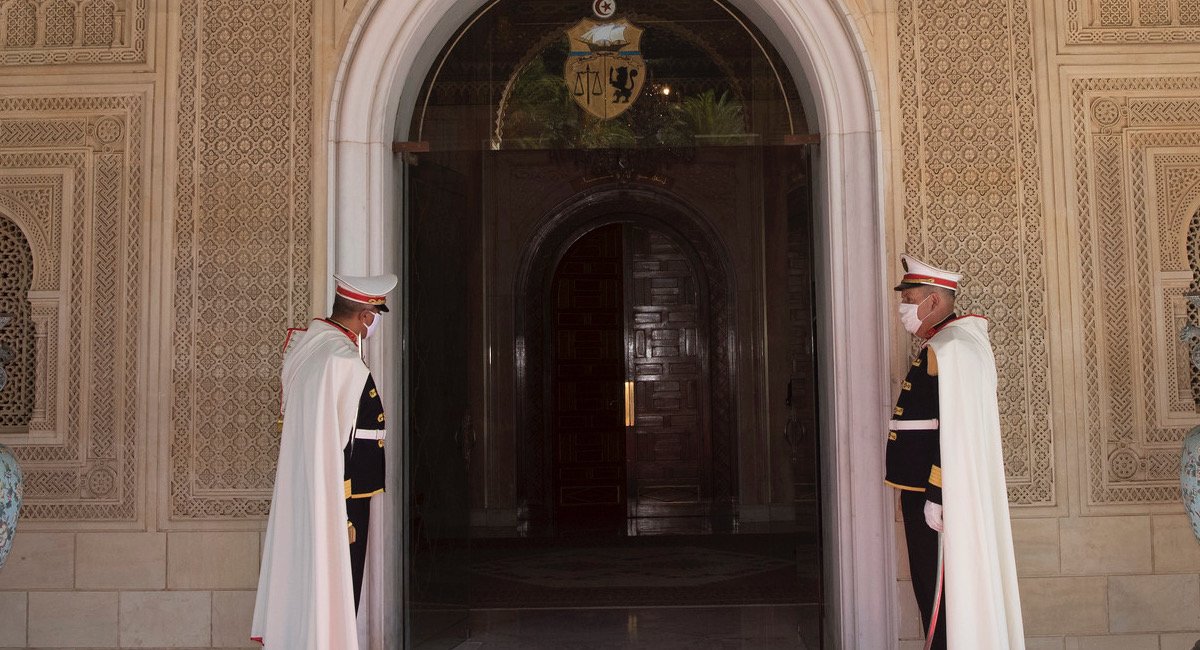

The July 25, 2021 measures may be a turning point for civil-military relations in Tunisia, with the military potentially assuming a significant political role.
Current developments in Tunisia may lead to a significant change in civil-military relations. On July 25, 2021, president Kais Saied announced measures that largely concentrate powers in his office, assuming control over the three branches of government. Immediately, the military was among the leading executors of the President’s measures.
The new measures expanded the role of the military, evidenced in the collaboration between the armed forces and internal security forces in securing strategic institutions and assisting in government response to the coronavirus pandemic. They implemented the President’s measures on disrupting the work of some institutions, including the Parliament. The armed and internal security forces also collaborated in arresting a political activist for insulting the President while the military court detained a parliamentarian, who was immediately released. Moreover, the parliamentarian Yassin Ayari was arrested in implementation of an old verdict for participating in acts that undermine military morale and dignity.
Meanwhile, the President had to rely on the military, in addition to the Ministry of Health, in handling vaccinations against coronavirus due to the slow vaccination process and the rise in infections. After a call for two general vaccination days coordinated by the military health service, over one million citizens were fully vaccinated, a significant increase in vaccinations since the beginning of the process.
Evolution of Civil-Military Relations
The Tunisian military always demonstrated professionalism in its relationship with the civilian authorities by maintaining neutrality and detachment from politics while accepting civilian control. Such practice is the culmination of various milestones. The first was the coup attempt against Habib Bourguiba in 1962, followed by the President’s alertness to the danger the military might pose, prompting its marginalization. The second was when the military became an instrument of Bourguiba’s ruling political order, using it to suppress opponents and confront protests, such as those of the General Labor Union in 1978 and the bread protests in 1984.
Former president Zine el-Abidine Ben Ali initially relied on military officers to establish his rule. Yet, after allegations of a coup attempt plotted by military officers and Ennahda movement in 1991, dozens of officers were fired and arrested as some were tortured, a matter that greatly weakened the image of the military before 2011.
In 2011, the armed forces protected the demonstrators but immediately returned to the barracks and did not interfere in politics, even after the political assassinations of 2013. Meanwhile, the Ministry of Defence budget increased from approximately $ 290 million dollars in 2011 to about $ 1.2 billion in 2021.
Concerns about Civil-Military Relations
First: Giving up Neutrality
There is a concern that the President’s new measures would be extended. Given the rising populism and the support this provides the President against the parliament, some observers fear there will be no return to the pre-July 25 conditions. Disruption of the legislature and the prospect of political turmoil this raises might prompt the military to intervene, or even declare martial law.
Second: Reestablishing Authoritarianism
The possibility that Saied will extend the exceptional measures may lead to a change in military behavior. Should the military throw its political weight behind the presidency, this will weaken other institutions and political actors, and may eventually lead to the reestablishment of an authoritarian regime. In this scenario, the military might transform, however unintentionally, into an instrument that the new political system may use to disrupt the democratic process, crack down on opponents, and settle scores.
Third: More Influence in the Political Arena
The absence of strong governmental and legislative oversight and control may eventually undermine civilian control over the military. The increasing popularity of the military due to achievements such as the COVID-19 vaccination process, would additionally strengthen its influence generally, and its leverage in relation to other government institutions.
The Tunisian president has a responsibility to ensure that the current political crisis and the changes it generates do not lead to protracted instability, nor strengthen the military at the expense of civilian institutions. Local and international civil society organizations may have limited leverage on the ground, but should at least monitor the evolving role of the military and the impacts on civilian oversight and control.
Ahmed Attalla is an independent Researcher, focusing on politics and human rights. He studied politics and law and published many studies and articles on human rights, democracy and social movements.



